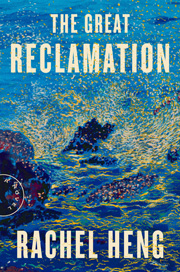
| Mon
Tue
Wed
Thu
Book Info
Subscribe
| |||
Dear Reader, Congratulations to the three winners of the March Chocolate Chip Cookie Giveaway, your homemade cookies to arrive next week: Audrey S., Linda U. and Erin B. Several years ago book club reader Laurie H., sent me an easy way to dress up any celebration. I especially liked her idea of making egg-shaped mascarpone with lemon curd for Easter. "Dear Suzanne, here is my 3-ingredient Mascarpone Heart recipe, which amazes my guests, but I make it in about one minute. It is lovely for tea parties…and holiday buffets. I love reading your amusing, enthusiastic, thoughtful and inspiring columns! Thank you for all you do for us every day!" Mascarpone Heart 1 tub of mascarpone cheese, softened slightly (8 oz. tub) Stir mascarpone in a tub, spread on a cake plate (cake stand is best) and form into a heart with about 1/2" ridges at the edges. Stir the jam/curd in the jar and spread over the inside of the heart. Serve the cookies on the side. For Easter, I'm going to make it into an Easter egg, with lemon curd on the inside and polka dots and stripes of blueberry jam. Thanks for reading with me. It's so good to read with friends. Suzanne Beecher P. S. Congratulations to the winners of last week's book giveaway: April N., Judy T., Linda M., Sheryl H., Dale L., Lisa P., Kim R., Carol A., Carole K., Karen P. You could be a winner, too, but you have to enter for your chance! | |||
The Great Reclamation | |||
|
(continued from Wednesday) He did know this much: Their kampong was on the southeastern shore of the territory they called Singapore, and was one of four clustered along the best fishing areas of the coast. Two of the kampongs were Chinese, populated mostly by Hokkien immigrants who had settled at the turn of the century. The other two were Malay, and were much older. There lived the fishermen who had taught the first Chinese settlers how to build boats from mangrove wood, to trap crabs in woven rattan cages, make sun-dried belacan out of crushed and fermented shrimp. It was out of respect for their neighbors that very few in Ah Boon's kampong kept pigs, and those who did made sure to confine them to pens. Nearly everyone in their kampong today had been born in Singapore; both Ma and Pa had grown up here. Pa's parents had too, as had Ma's father, though her mother had come on a ship from the Mainland, driven by drought and poverty. All were dead now. Pa's mother was the only one Ah Boon had ever met, though he'd been too young to remember it. Ah Boon hoarded these facts carefully, although he did not know what drought was, or what the adults meant by "the Mainland," though he gathered it was somewhere very far away, a place where everyone was Chinese and looked like them. He had the sense that it was important to remember things. It gave him comfort to be able to recall, exactly a year ago, his mother telling him that he must never marry a woman who was not Hokkien, and preferably not someone who had come from the Mainland, but rather someone who had, like him, grown up in Nanyang. He'd been only six at the time of this pronouncement, but Ah Boon carefully stored it in the corner of his mind that was concerned with the future. It was late when the boat came back, the sun just barely suspended over the horizon. What would the men say? They had been gone for the whole afternoon. Ah Boon's stomach twisted with excitement as he raced down the beach, the sun-warmed sand delicious beneath his bare feet. He watched Hia, far ahead of him as usual, white singlet bathed in the dusky light as he splashed into the surf, waving his arms above his head. But the men on the boat did not wave back. Pa steered the boat toward the shore slowly, just as he had earlier that morning. How strange to think that it had been the same day. Hia called out to them, but Ah Boon was too far away to make out Pa's reply. Finally Ah Boon was at Hia's side. Something was wrong. The men were wrapped in a thick silence, speaking only the occasional monosyllable as they dragged the boat onto the shore. "What happened?" Ah Boon whispered to Hia. "Shut up," Hia said, pushing him away. The raw edge in Hia's voice suggested he had been scolded by Pa, so Ah Boon did not ask again. Ma was here now too, speaking to Uncle in a low voice on the beach. As soon as the boat was out of the water, the men gathered in a circle. "What you mean, nothing?" Ma said. "Nothing," Uncle said. "No island. We went around for hours." Ah Kee was shaking his head. Ghim Huat scratched the silvery stubble that lined his chin. Ah Tong clicked his tongue over and over again. Pa was silent too. Folds raked the skin of his neck, stretched like thin rubber bands around his throat. His long earlobes sagged. Ah Boon realized, for the first time, that Pa was old. They stood there in silence for a long while. Then Pa shook his head, shaking off the whole befuddling day, and said: "No point worrying. Come, go home." The men exchanged skeptical glances, and Ah Boon saw how it seemed to them. "It was there!" he blurted. "I saw also. The island was there." The men stared at him; Ah Boon's cheeks burned. They shook their heads. "Keep quiet, Boon," Pa said. "But I saw it," he whined. "Quiet!" How could the men not believe what he had seen with his own eyes? It was unbearable to feel them doubting Pa, to feel Pa's own creeping doubt. "Enough for today," Ghim Huat said. "Everyone is tired. Come, go home." Chapter Three Without a word the family went back to their regular routine. Pa and Hia doing the morning trip, Uncle and Pa taking the fish to the market, Ah Boon staying to help Ma around the house. Ah Boon had not cared for fishing before, yet he now longed to return to the boat. But the regular routine meant he was banished from the sea. Ah Boon shared a bed with his brother and couldn't help but wake up every morning when Pa came to get Hia. Each time he would lie still, keeping his eyes closed, hot with envy and shame. Ah Boon was sure he had fared so poorly on his one trip out that his father now disdained him—what else could be the reason for his no longer being allowed on the boat? He tormented himself by imagining Hia at sea with Pa, the wind whipping through his hair as he faced the black, unknown water. It had been decided, it seemed, that Hia would be Pa's son, and Ah Boon, Ma's. And so Ah Boon drew water from the well, hung laundry, turned salted fish on sun-warmed mats. What he had previously taken pleasure in now felt like punishment. He tried to remind himself how happy he'd always been to stay by his mother's side on dry land, trapping red ants with matchboxes in the shade of a coconut tree. It was he, fter all, who had not wanted anything to do with fish. He who hated the way his skin grew clammy after seawater had dried on it, disliked how sand gave way beneath his feet in a receding surf. And yet—the island. High cliffs, verdant shores. As dark and implacable as the sea itself. The island made the sea comprehensible, less boundless, more known. But it had disappeared. The mystery of it nagged at him as he went about his chores, and he dreaded the day that Pa and Hia would return exuberant, having found it again. Then the island would be a secret that they alone shared, and Ah Boon's exclusion would be complete. It was not unusual, in the kampong, for adult siblings to throw plates as readily as they would trade insults, wives to chase husbands out of open doors, grandparents to make loud pronouncements regretting their children's birth for minor disobediences. The Lees' house, however, was one of silences. A different quality to each silence: some stiff and crackling, air turned to ice; others thick as ghee, seeming to leave oily smudges on the skin. The silence around the subject of the island, however, was like nothing Ah Boon had ever encountered. Everything at home seemed fine, other than the apparent amnesia. Ma and Pa had stopped arguing about Uncle going back to work, Uncle no longer fretted about money for the sinseh, Hia even refrained from making fun of Ah Boon for not being let back on the boat. The silence was becoming something physical to Ah Boon, a weight bearing down on his small shoulders. Finally, one morning, he could not take it any longer. Ah Boon waited until Pa had gone to the market. Hia was bathing himself behind the house. He could hear the distant sound of water sloshing over his brother's body, trickling into the earth, a comforting sound that repeated itself over and over again. Perhaps he shouldn't make a fuss when everyone else seemed happy to forget. But there it was again: the island, looming in his mind, towering, inscrutable. And so when Hia came in with a faded pink towel wrapped around his waist, water falling from his dark hair, Ah Boon asked him in a small voice if they had seen the island again. Hia frowned. "Don't talk about the island," he said. "It's bad luck. Pa say is unclean, some dirty spirit at work." "So if I tell Pa I won't talk about it, then can I come back on the boat?" Ah Boon asked. Hia's frown turned to a smirk. He wet his lips. "Bawal, use your brain. Pa and I do the morning trip together for so many years already. But the island only appear when you're there," Hia said slowly. "So what?" "Means if got spirit, it's you the spirit likes. Anyway, last week Pa told me himself, he said you can never be a good fisherman." Before he knew what he was doing, Ah Boon lunged at his brother with all his strength. Hia fell to the floor with a loud thump. He wrapped his hands around Ah Boon's wrists, fending off his slaps and scratches. They'd been much younger the last time they'd fought, and now the gap between them had narrowed. All those years of carrying heavy buckets from the well and pushing wheelbarrows up the beach had made Ah Boon's muscles hard and flexible, despite his scrawny frame. Evenly matched, the brothers rolled around the floor making a terrible noise, knocking over stools and getting tangled in the towel Hia had wrapped around his waist. "What are you doing? Aiyo! Stop it! Stop!" The boys paused, and in that pause Ma grabbed each by the ear, dragging them apart. "Boon started it," Hia said. "Don't bluff, Yam," Ma said. (continued on Friday) Love this book? Share your review with the Publisher
| |||
| Mon Tue Wed Thu Book Info | |||

